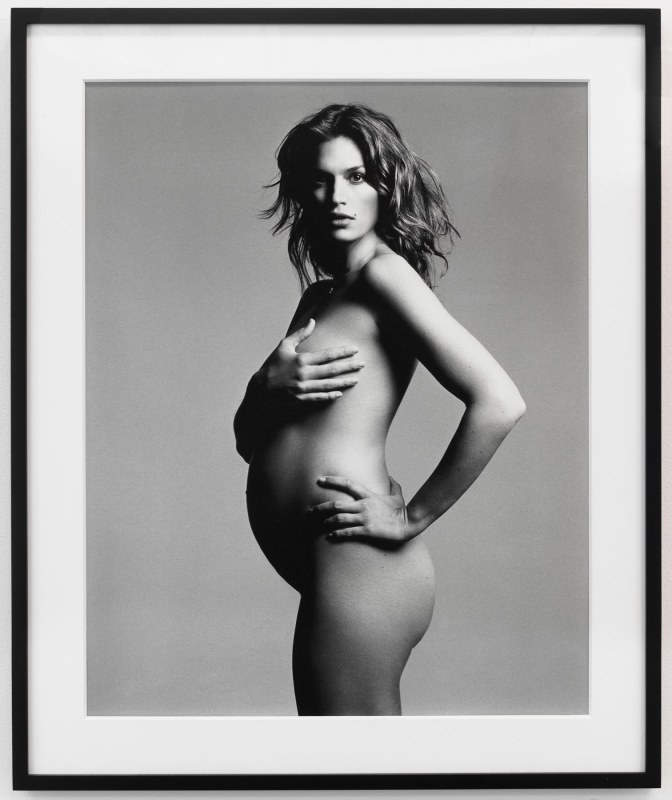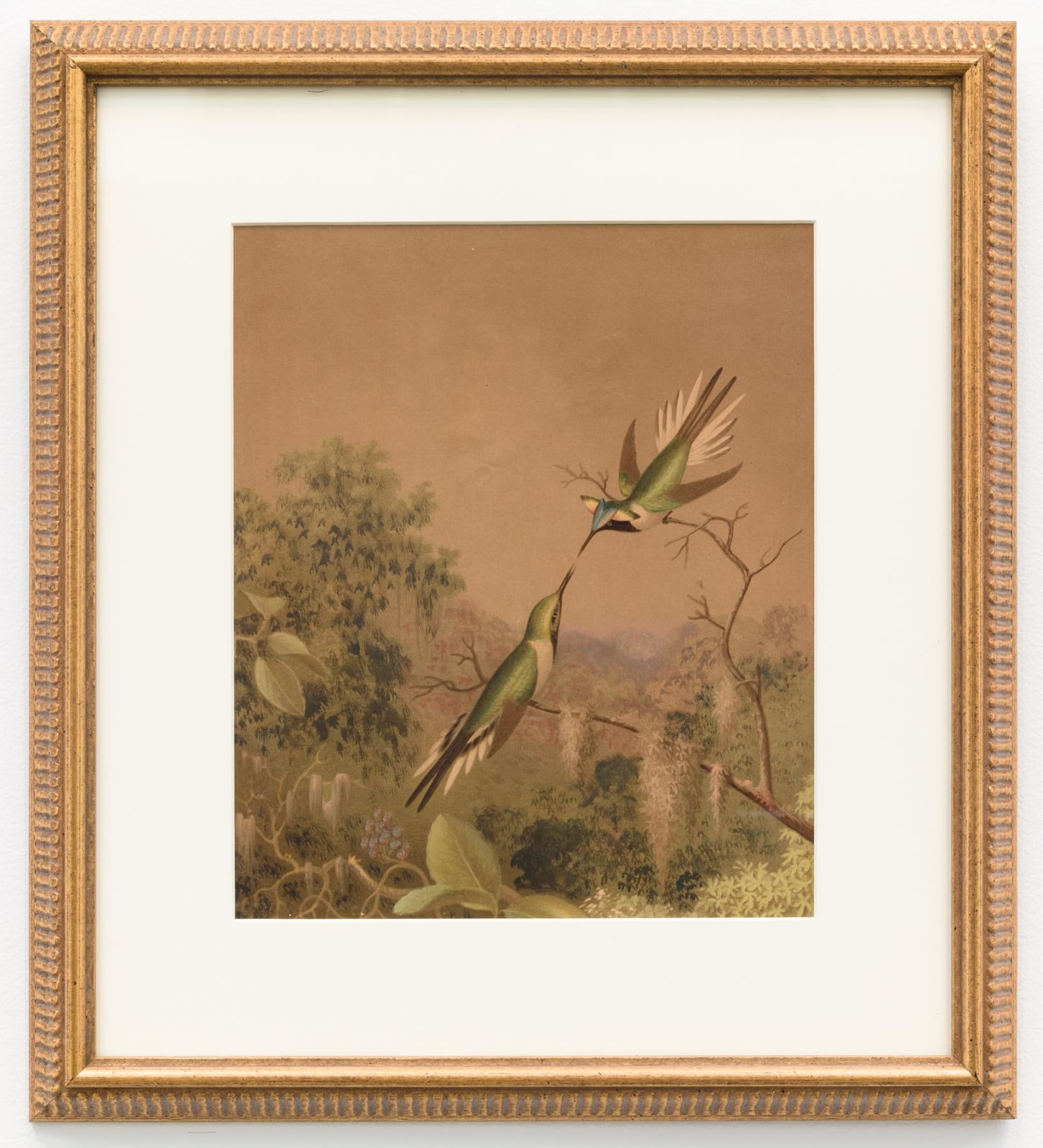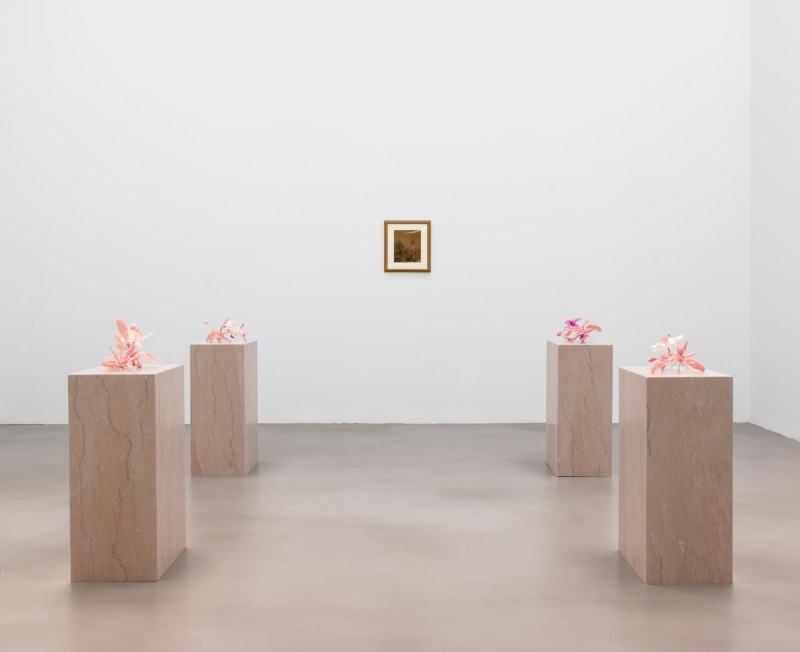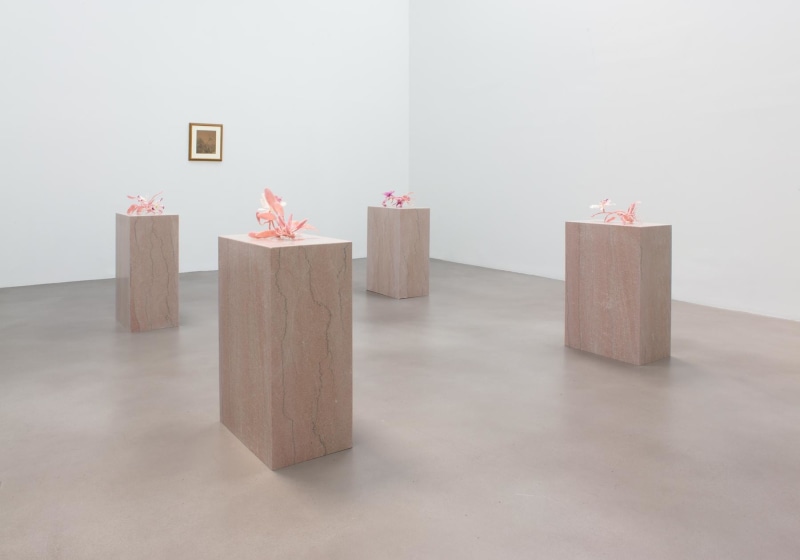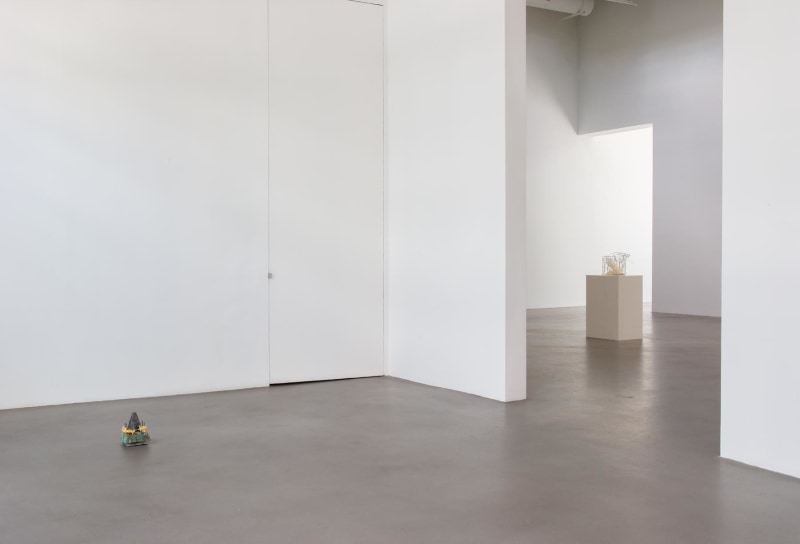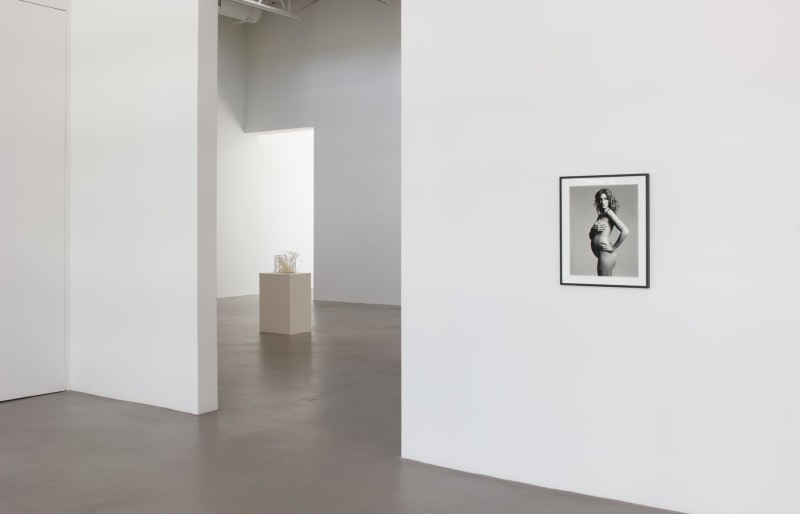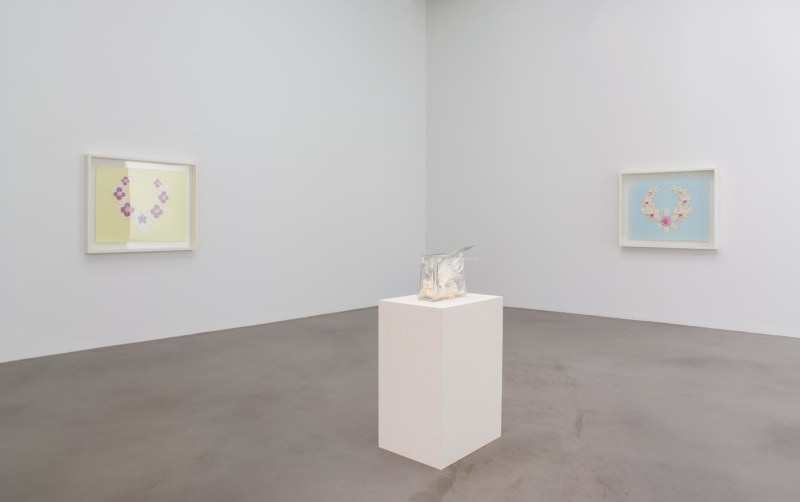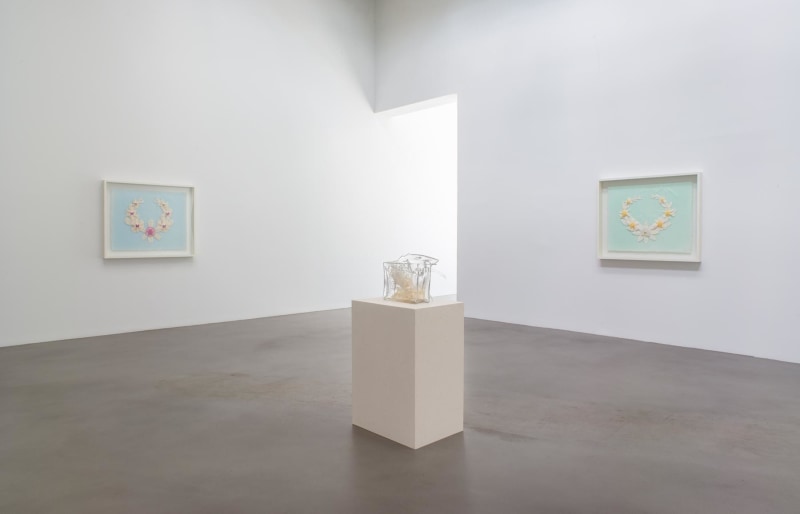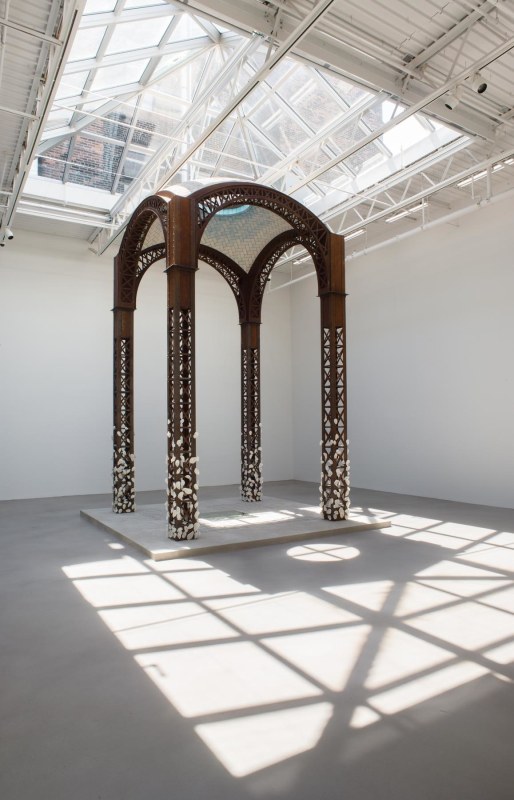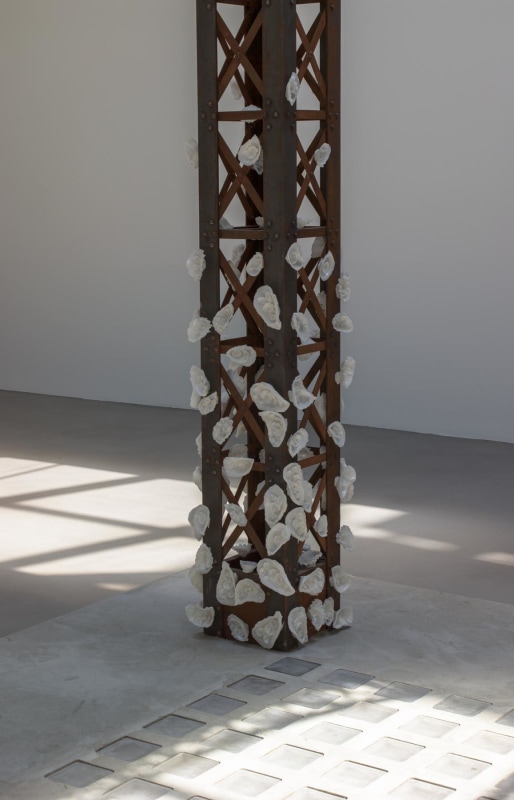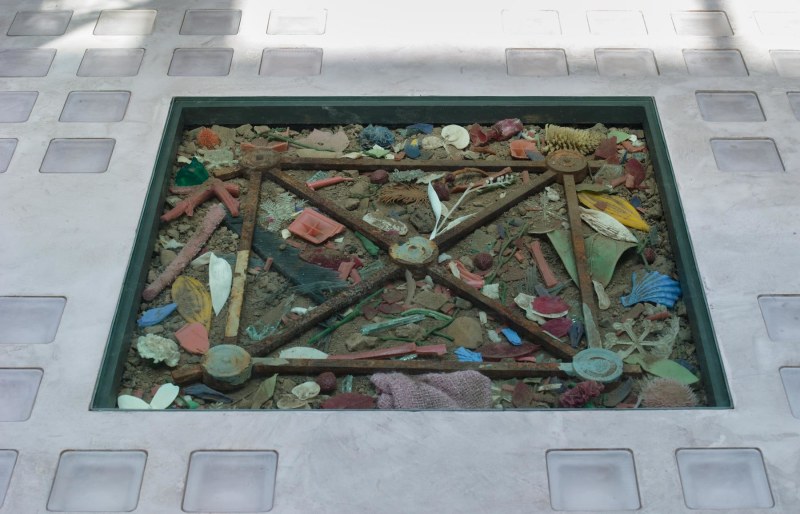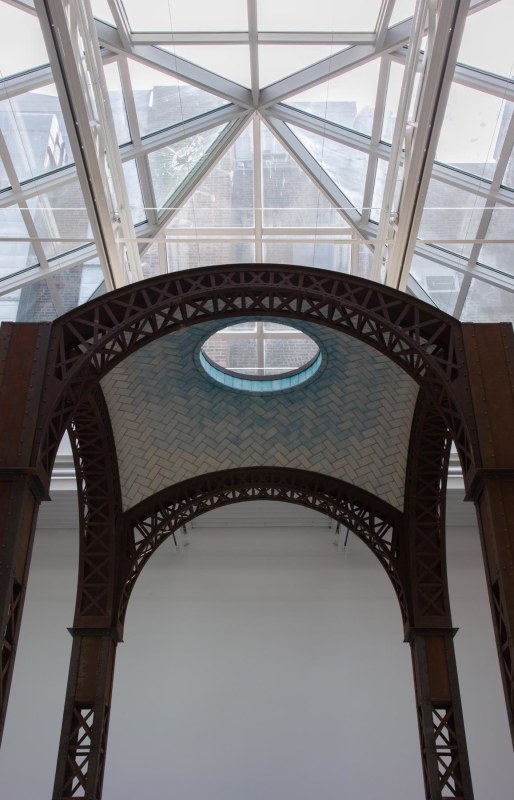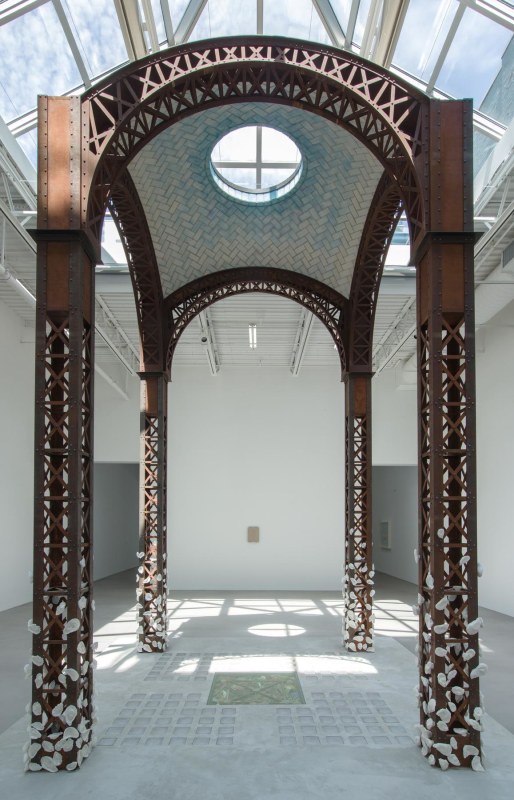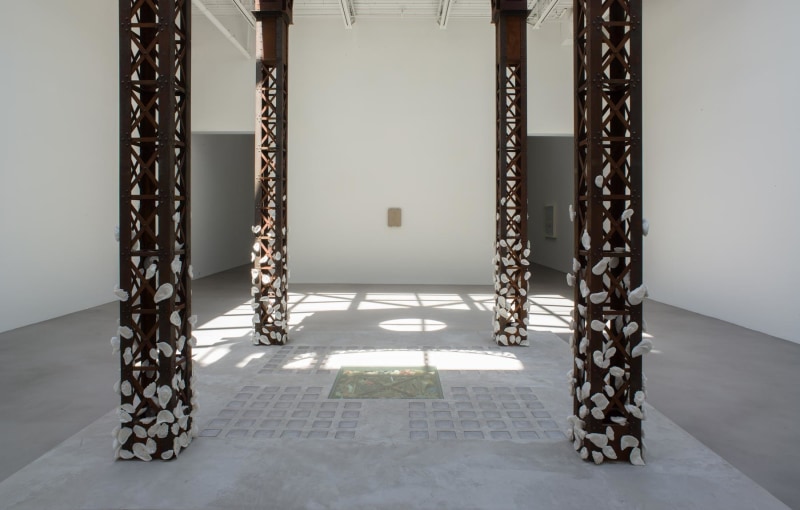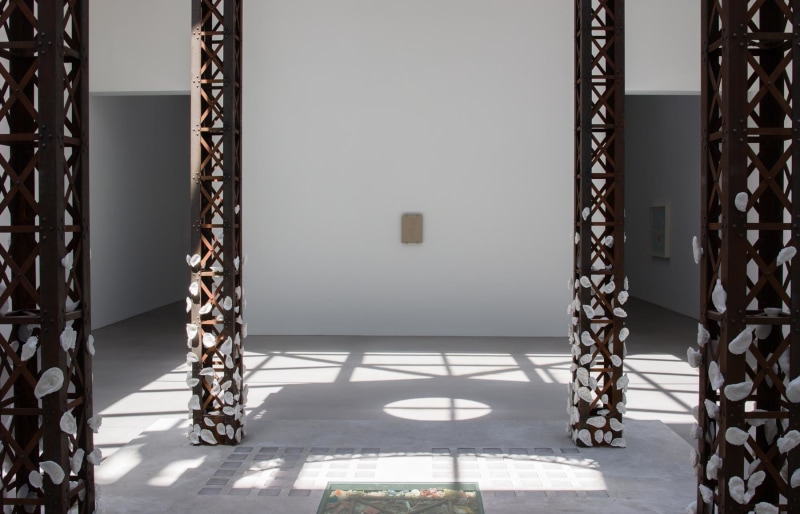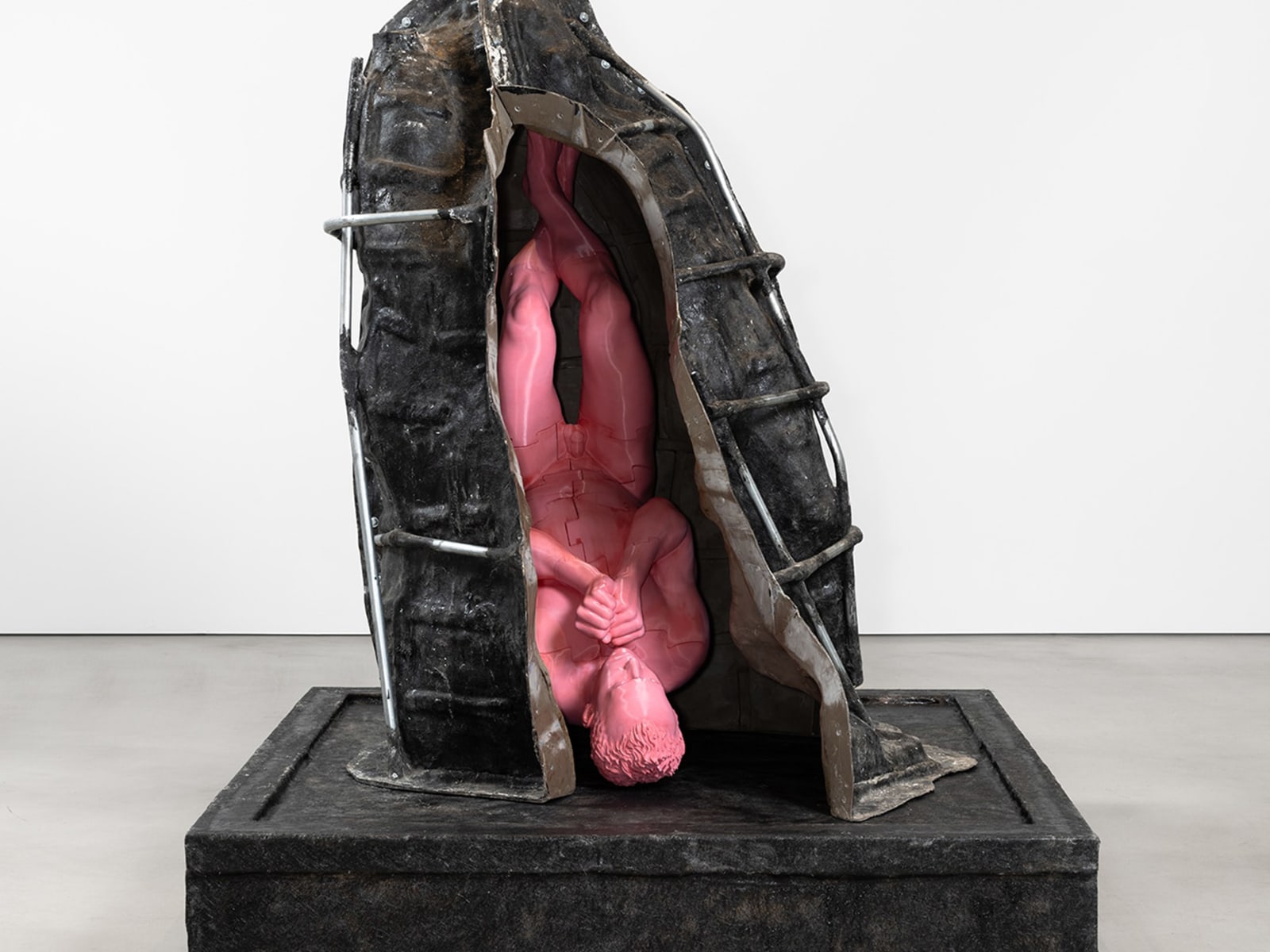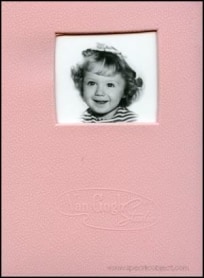Petzel Gallery is pleased to announce Regeneratrix, a solo exhibition by New York based artist Keith Edmier. This will be the artist’s fifth solo exhibition and his first large-scale exhibition at the gallery in ten years. The exhibition is accompanied by a catalog with an essay written by independent curator and art historian Norman Rosenthal.
Keith Edmier’s newest sculptures are monumental. They are intended to allude to a multiplicity of histories including the artist’s recent past, rather than commemorate one particular time or event. Each artwork’s meaning is derived from both the material it is built of and the form that it takes. Thus, the structures exhibited in Regeneratrix refer to a myriad of positions: the languages of flowers, the cycles of life, Cesare Ripa’s personifications, geological strata, ancient and religious goddess myths, new and old empires, and histories of architecture and art.
Regeneratrix is divided into four interconnecting rooms. Penn Station Ciborium (2012–13) was conceived for the exhibition curated by Norman Rosenthal and Alex Gartenfeld entitled Empire State, which premiered at the Palazzo delle Esposizioni, Rome in 2013. Edmier drew inspiration for the sculpture from the architecture of the ancient Roman basilicas and baths, the Pantheon, as well as the glass-and-iron exhibition halls of the nineteenth century, of which the Crystal Palace in London is the most indicative. The artist conflates the architectural references with his own studio and its proximity to two railway stations: Grand Central and its famous oyster bar (oysters being indigenous to the New York waterways) and the now demolished Penn Station that was disposed of in the Meadowlands in 1963. The sculpture, in the guise of a ciborium, or canopied altar, acts as a reliquary for the remnants of the artist’s studio that are laid to rest with the train station’s excavated iron and Meadowlands soil.
Edmier has brought Rome to New York in Scultura (2014), which takes its name from the personification of sculpture found in Cesare Ripa’s (aka Giovanni Campani) Baroque dictionary of icons entitled Iconologia (1593). Edmier has extracted the image of the Venus de’ Medici from this illustrated tome and updated it as an etching on lithographic stone. The executed image is after a photograph of Cindy Crawford pregnant (posed as the Venus de’ Medici) that had graced W magazine’s cover in 1999. The original photograph of Crawford also happened to be shot at 456 West 18th Street, in the space’s previous incarnation as a photography studio, before it became Petzel Gallery. The sculpture depicts the remains of an etching faintly perceivable on the limestone after one lone print has been pulled from it.
As Crawford is a reimagined image of the goddess Venus, Edmier extends the metaphor to Princess Grace Kelly and her infamous handbag produced by Hermès. The Kelly Bag (Salmacis) (2015), is cast in clear glass. Set inside of it is a polyurethane-cast wedding bouquet. The oft-repeated story is that the “Kelly” bag received its name and became popular after a magazine cover showed the pregnant Princess Grace using it to shield her stomach. Edmier poses the bag as a surrogate womb. In this regard, The Kelly Bag (Salmacis) is akin to the artist’s former work, Beverly Edmier, 1967 (1998), that depicts his pregnant mother seated and dressed in Jackie Kennedy’s distinctive pink suit.
Allusions of princesses and the First Lady are extended to a series of cast sculptures of orchids entitled, First Lady Cattleyas (2015). Each sculpture is a life-cast of a hybrid Cattleya orchid that had been bred in honor of a First Lady (a long-standing tradition since 1929). Each orchid lays in repose atop a Tennessee pink marble pedestal. Edmier has posed them (Barbara Bush, Hillary Rodham Clinton, Laura Bush and Michelle Obama), twisting the stem and hand-painted flower upright to mirror the same compositions found in Hudson River School painter Martin Johnson Heade’s Orchid and Hummingbird paintings (1871–1890). Edmier has emphasized the connection with the inclusion of a Martin Johnson Heade chromolithograph of hummingbirds printed in 1864 hanging on the gallery’s wall.
Heade is also complimented by the sculpture, Hieros gamos (2015), situated upon the floor at the entrance of the gallery as if it has crashed through its large skylight. The cast aluminum pyramid is a to scale replica of the tip of the Washington Monument (built between 1848– 1885, the same time period as Martin Johnson Heade made his orchid and hummingbird paintings). Edmier has crowned the object with a cast bronze and gold-plated myrtle wreath. The sculpture echoes Heade’s more famous paintings of approaching thunderstorms as the monument’s metal apex acts as a conductor for lightning.
Keith Edmier was born in Chicago, Illinois. His work has been shown throughout the United States and internationally. He has been the recipient of survey exhibitions at the Frans Hals Museum in Haarlem, the Netherlands (2012) and CCS Bard Hessel Museum, Annandale-on-Hudson (2007). He has held solo exhibitions at The Andy Warhol Museum in Pittsburgh (2003) and the Los Angeles County Museum of Art in (2002). His work was featured in the 2002 Whitney Biennial and in group exhibitions at the Sculpture Center in New York (2013), the Walker Art Center in Minneapolis (2012), Kunstwerke in Berlin (2007), Tate Modern in London (2007), Tate Liverpool (2005), Museum of Contemporary Art in Rome (2007), Kunsthalle Vienna (2004), and Migros Museum in Zurich (2004). His work are in the permanent collections of major museums such as the Tate Gallery, London; San Francisco Museum of Modern Art; The Walker Art Center, Minneapolis; and the Israel Museum, among others. He is the recipient of the Louis Comfort Tiffany Foundation 2001 Biennial Award. In the fall of 2016, his installation of the interior of his childhood home, entitled Brementowne (2008), will be installed at The Walker Art Center. For press inquiries, please contact Janine Latham at janine@petzel.com, or call (212) 680-9467.
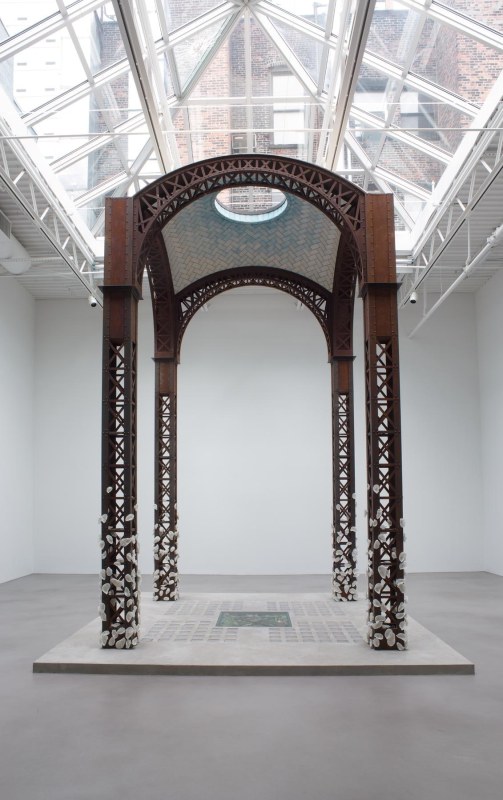

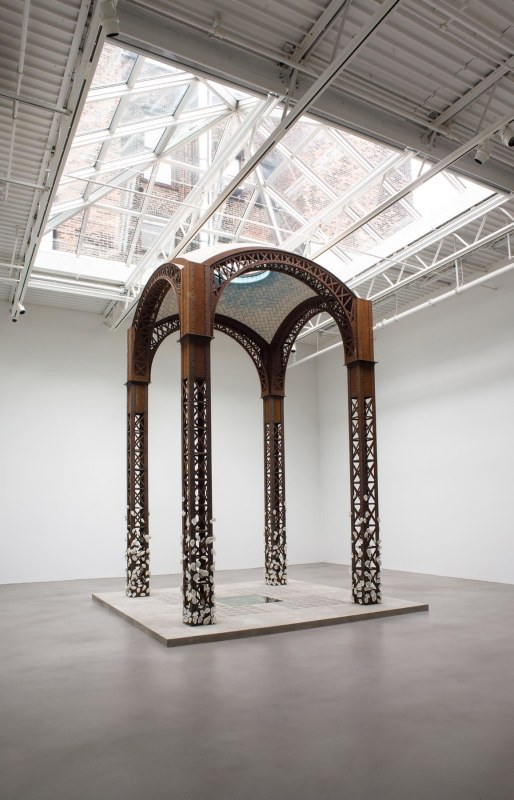
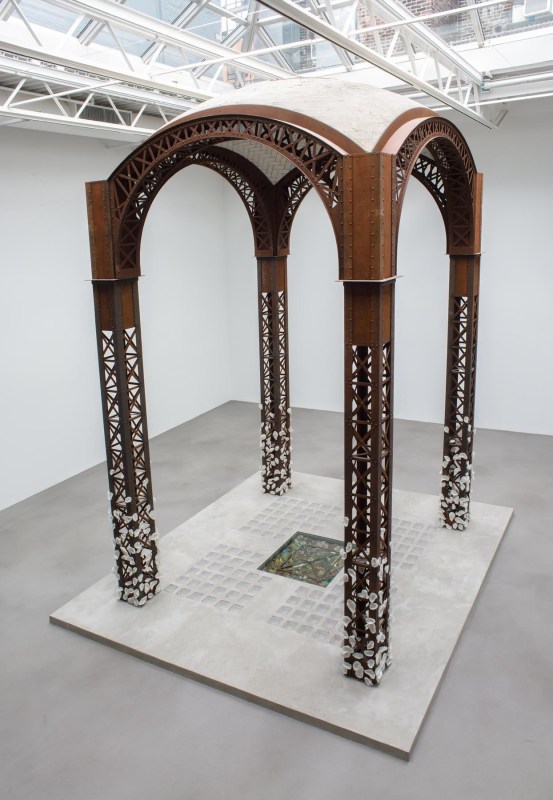
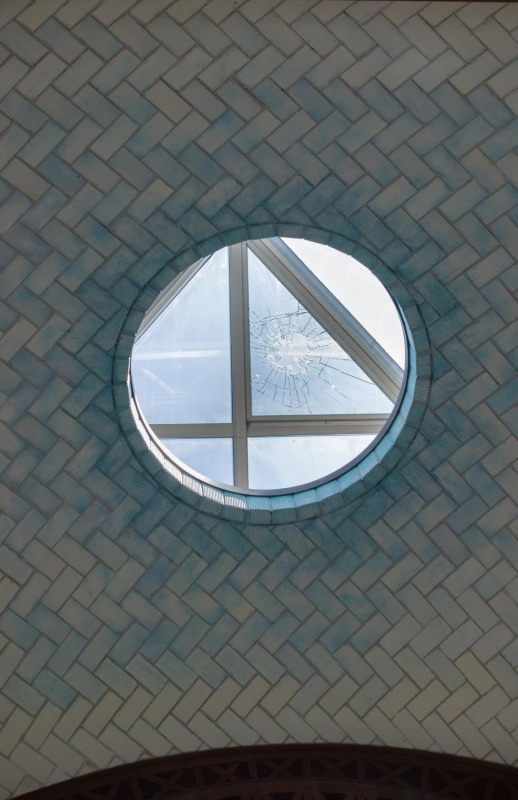
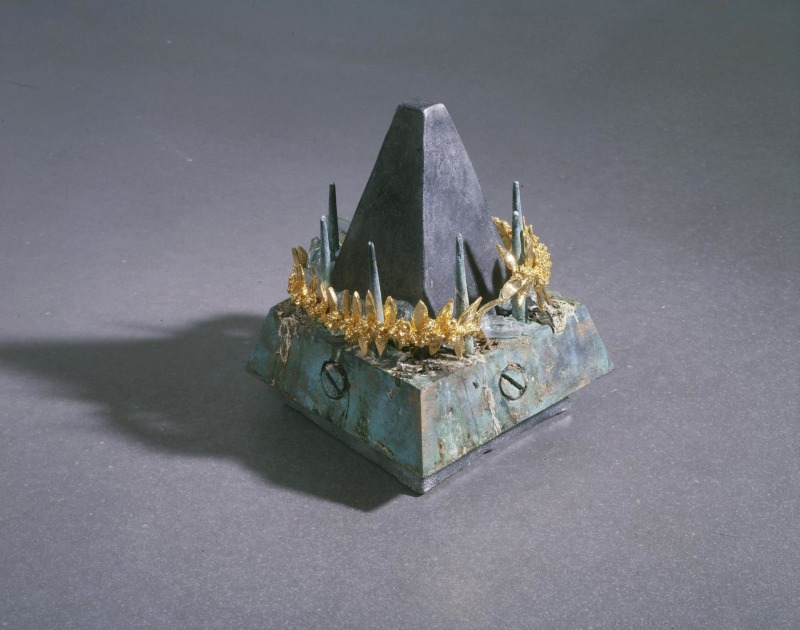
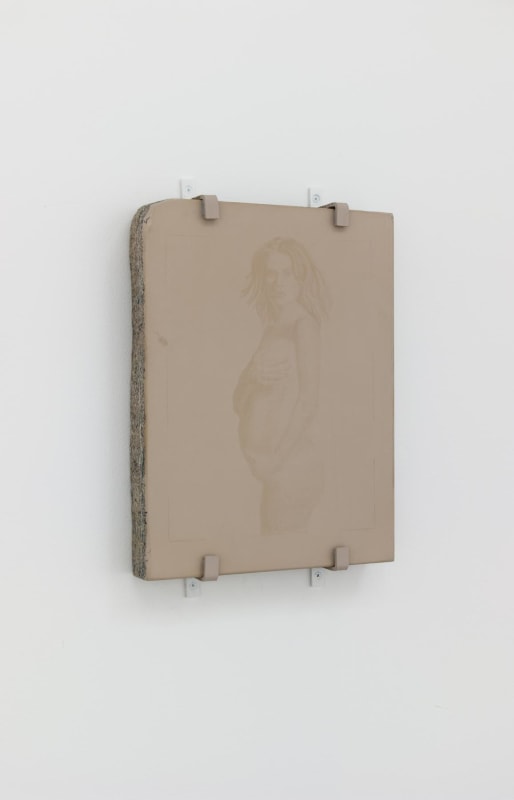
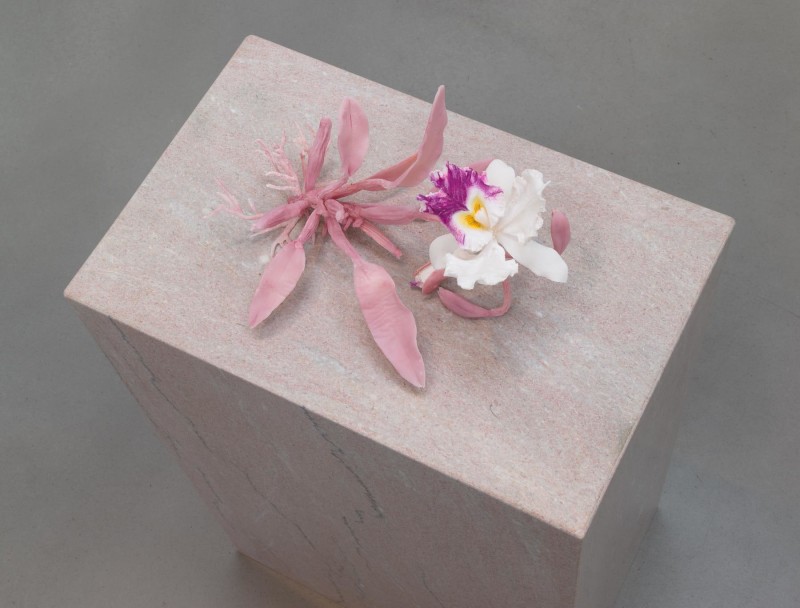
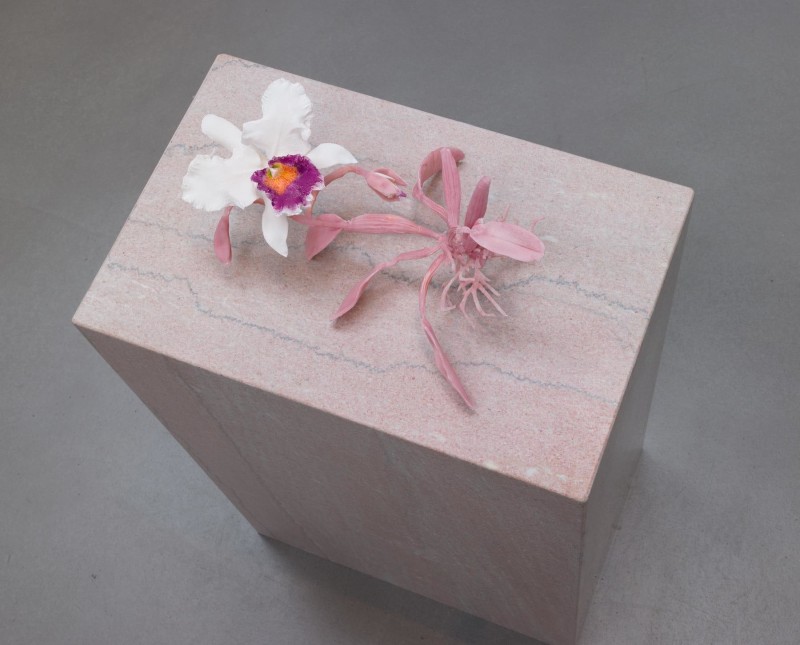
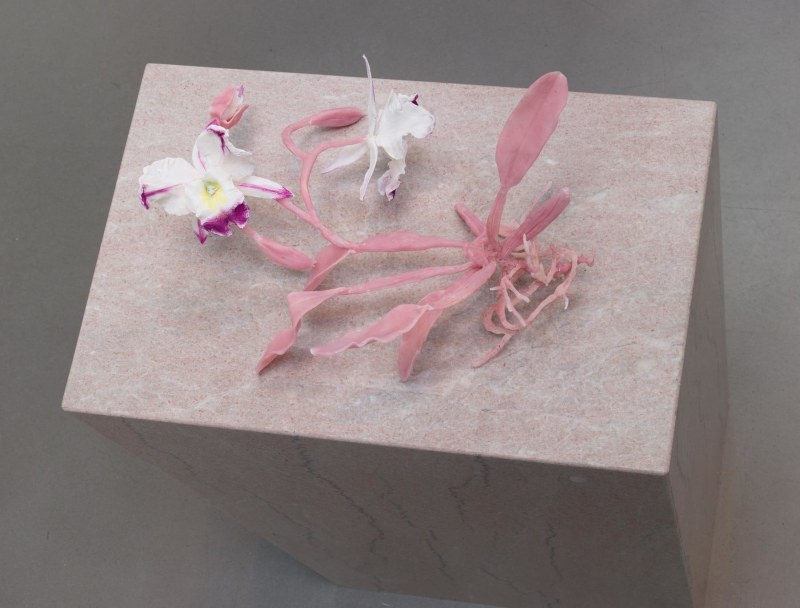
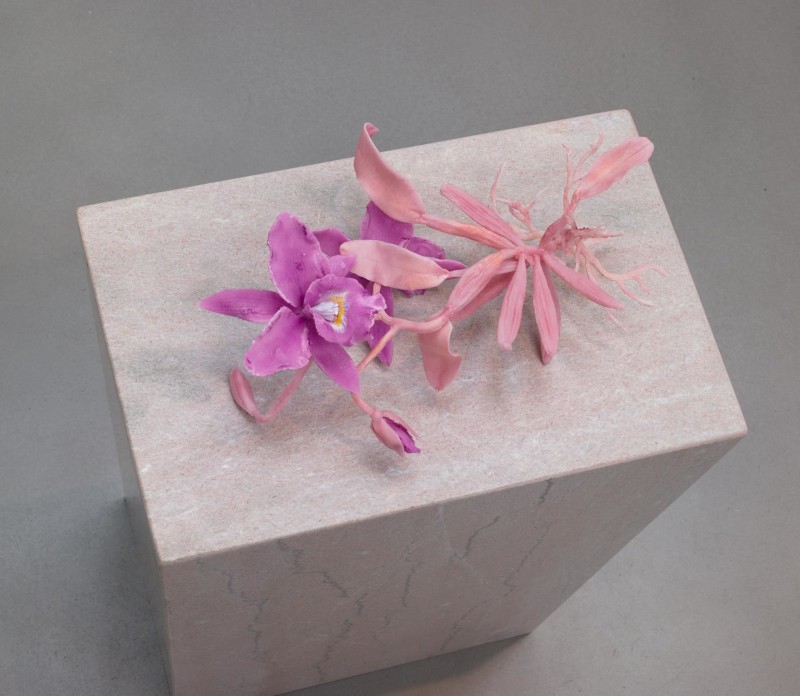
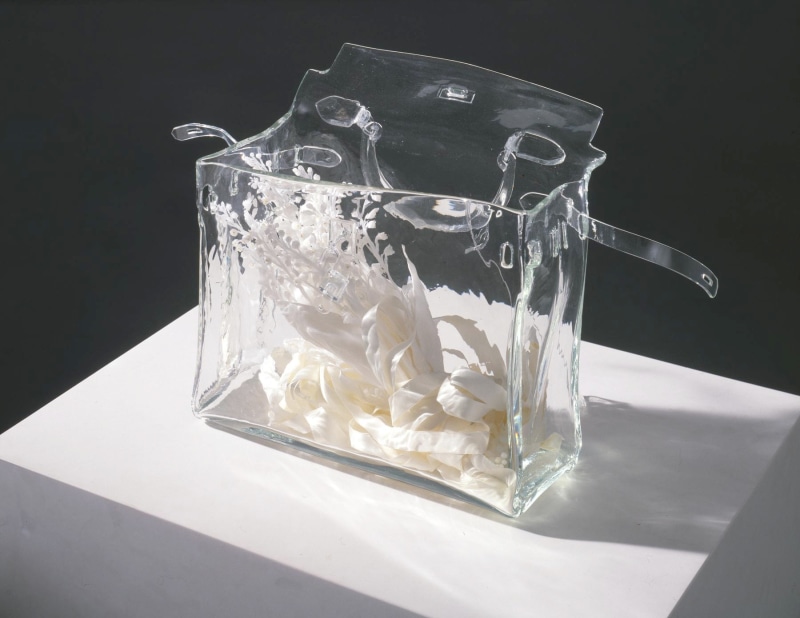
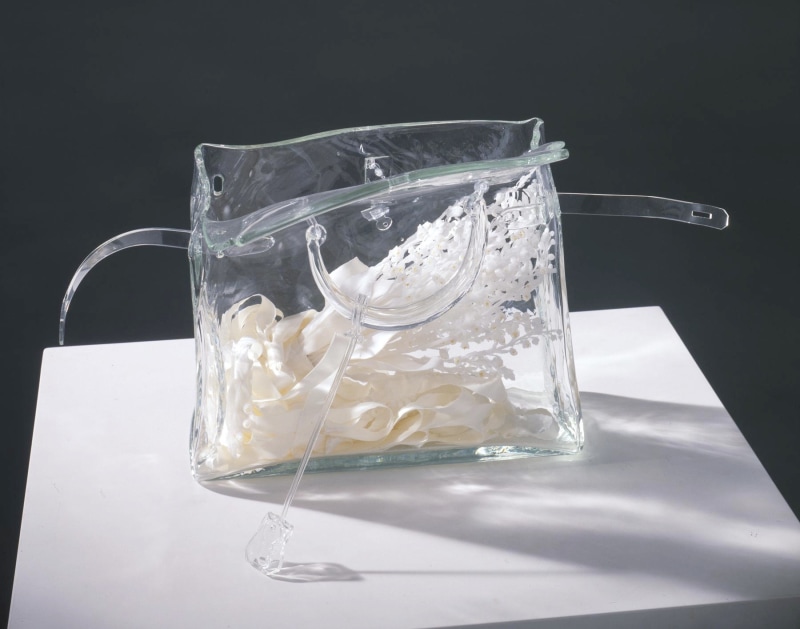
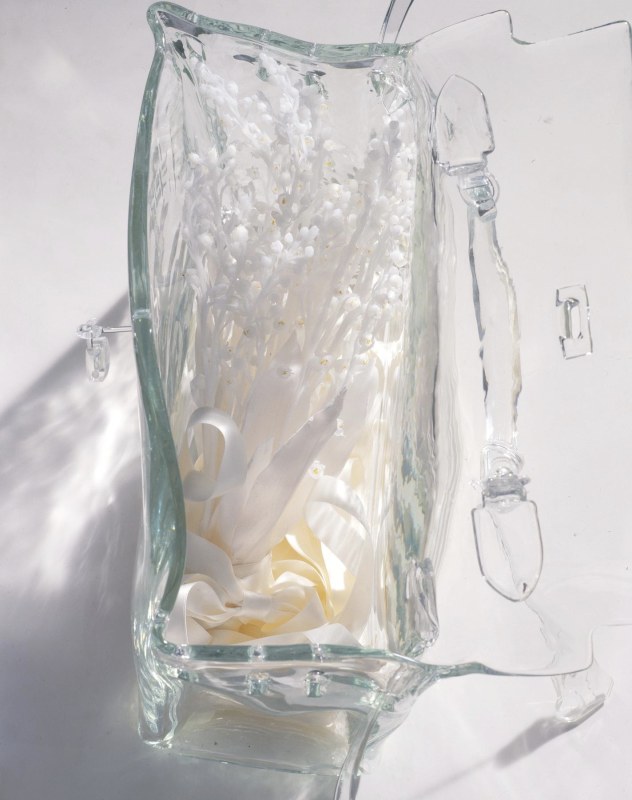
![[In the Style of] GPK (Conversation)](https://img.artlogic.net/w_800,h_800,c_limit/exhibit-e/63692af4d0d707561d062132/cfd198036f2ad7692d80bf7d30cb940b.jpg)
![[In the Style of] GPK (Virtue)](https://img.artlogic.net/w_800,h_800,c_limit/exhibit-e/63692af4d0d707561d062132/dee684bdb2ca4b2b188c4be4ab8afcf6.jpg)
![[In the Style of] GPK (Emulation)](https://img.artlogic.net/w_800,h_800,c_limit/exhibit-e/63692af4d0d707561d062132/2080ff9e14c07e2ba33c37135ba61233.jpg)
